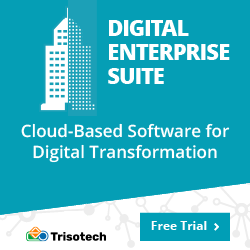The Enterprising Business: Its all about the people
Blog: The Knowledge Economy
Too many enterprises do not appreciate the true value of the people with whom they work.
Regrettably, in the extreme, employees and contractors are regarded as merely commodities that can be exploited when needed or discarded when not. In the worst case scenario people managers are self-obsessed. It is all about what is in it for them. All actions revolve around providing themselves with the greatest personal advantage: frequently looking at the short-term gain rather than the long term benefit.
Progress is often seen as the automation of business systems with the associated reduction in the workforce: the logical but hopefully unattainable goal of being able to either eliminate the workforce and all associated costs or its reduction to being no more than automata.
That there are no fully automated businesses is encouraging, although the trend in that direction is not. Cost reduction rather than growth is frequently the key focus of too many businesses. Doing more with less should not be an end in itself. Waste is undesirable but increasing productivity though overwork is not.
Business systems largely cannot succeed without the skills and knowledge that people bring to the table. It requires people, their vision, knowledge, their creativity and ability to innovate and the richness of their experiences together with their willingness to work to enable successful systems to be enabled in the first place.
Uncertainty cannot be eliminated in a business. There are always unknown variables affecting any given activity. Not all operating conditions can be catered for using technology, so consequently successful businesses are ultimately reliant on the knowledge, analysis, decision making skills and the willingness to contribute of actual people.
Key points when considering the true value of people:
- People have ideas.
- People are creative.
- People identify opportunities.
- People innovate.
- People anticipate, recognise and assess risks.
- People can accommodate change.
- People make decisions machines follow rules.
- Where there is no rule defined, people can use their initiative.
- People are not machines and cannot be treated as such.
- People are much more than the jobs which they do.
It is essential to acknowledge that individuals have their own needs and aspirations. Treating them respectfully as assets, will engender satisfaction and loyalty resulting in business benefit far in excess than would be available to the alternative.
Dehumanising the workforce and applying processes that feed the lowest common denominator by not recognising the needs of the individual can be expressed through:
- Demonstrating a lack of respect by not using manners. Always ‘telling’ rather than ‘asking’ shows a lack of common courtesy.
- Providing no mechanism for allowing considered opinions or feedback to be offered on activities undertaken, removes to opportunity for valuable process improvement and more insightful decisions.
- Requiring that people will work on demand at any time and reinforced through an expectation that phone calls and emails will be acknowledged and responded to at all hours. A private life should not be regarded as an optional extra.
These detrimental behaviours can all foster resentment, low self-esteem, dissatisfaction, disloyalty and inefficiency: all impacting the realisation of on-going business benefit.
A successful enterprise will truly value its people.
It will:
- Appreciate that each individual is unique and may respond to different stimuli in different ways. Flexibility in dealing with individuals is important.
- Recognise that individuals have knowledge. skills and experiences that extend beyond the boundaries of the roles to which they have been assigned and be prepared to leverage them.
- Accommodate the fact that most people work to live and have a life outside of the workplace.
- Be cognisant of and acknowledge the value, both privately and publicly, that both individuals and groups provide.
- Providing feedback through positive reinforcement and constructive criticism where appropriate increases the feeling of self-worth and the feeling of appreciation in the individual.
- Realise that without people the enterprise does not exist.
Without people an enterprise cannot flourish. Without people the enterprise has no purpose.
With people properly recognised as being the assets they truly are, the enterprise may realise its full potential.
Leave a Comment
You must be logged in to post a comment.








